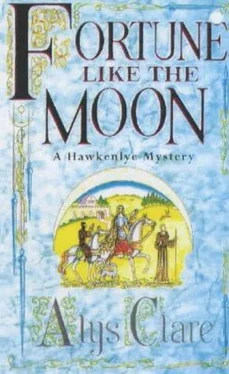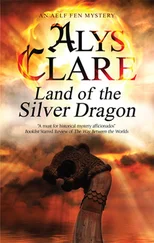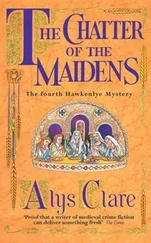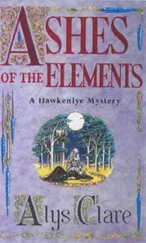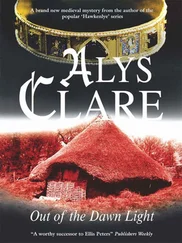Alys Clare - Fortune Like the Moon
Здесь есть возможность читать онлайн «Alys Clare - Fortune Like the Moon» весь текст электронной книги совершенно бесплатно (целиком полную версию без сокращений). В некоторых случаях можно слушать аудио, скачать через торрент в формате fb2 и присутствует краткое содержание. Год выпуска: 0101, Издательство: St. Martin, Жанр: Исторический детектив, на английском языке. Описание произведения, (предисловие) а так же отзывы посетителей доступны на портале библиотеки ЛибКат.
- Название:Fortune Like the Moon
- Автор:
- Издательство:St. Martin
- Жанр:
- Год:0101
- ISBN:нет данных
- Рейтинг книги:3 / 5. Голосов: 1
-
Избранное:Добавить в избранное
- Отзывы:
-
Ваша оценка:
- 60
- 1
- 2
- 3
- 4
- 5
Fortune Like the Moon: краткое содержание, описание и аннотация
Предлагаем к чтению аннотацию, описание, краткое содержание или предисловие (зависит от того, что написал сам автор книги «Fortune Like the Moon»). Если вы не нашли необходимую информацию о книге — напишите в комментариях, мы постараемся отыскать её.
Fortune Like the Moon — читать онлайн бесплатно полную книгу (весь текст) целиком
Ниже представлен текст книги, разбитый по страницам. Система сохранения места последней прочитанной страницы, позволяет с удобством читать онлайн бесплатно книгу «Fortune Like the Moon», без необходимости каждый раз заново искать на чём Вы остановились. Поставьте закладку, и сможете в любой момент перейти на страницу, на которой закончили чтение.
Интервал:
Закладка:
But, even if he was new to investigating brutal crimes, he had his common sense and his logic, both of which told him that what he was about to ask was essential. Before he could change his mind, he said, ‘Madam, I have to see the body.’
She didn’t answer straightaway, but he noticed that she seemed suddenly to be steering their steps towards the church. Above its door, he observed, was a particularly finely carved tympanum. ‘It is two weeks, more or less, since she was found,’ the Abbess remarked.
‘Aye. I know.’
‘And it is July, sir. An unusually hot July.’
‘Aye.’
They stood together at the church door. She was watching him, a hand up to her eyes to shade them from the brilliant light. He returned her stare, resisting the temptation to hang his head as if in shame at being caught out in a salacious thought. He could not read her expression: it was is if her face were smoothed out. The smile which quirked her wide mouth and raised the well-shaped cheeks was absent, and it was only now that it wasn’t there that he realised he was already recognising it as characteristic of her.
He was about to press his request, explain why he was making it, when she reached out and lifted the heavy latch. ‘I will show you the way,’ she said quietly.
He followed her down a short flight of steps into the church. She made her genuflection, which he copied, then walked up the aisle, past what appeared to be a totally enclosed side chapel — the lepers’ chapel? — then, turning to her left some five paces in front of the altar, opened another, much smaller door. This, too, gave on to steps, but in this case not a wide, shallow flight carved of stone, but a narrow and steep little spiral made of wood.
The smell, which he had scarcely noticed in the church, had increased tenfold with the opening of the little door.
She made her careful way down the stairs. Over her shoulder, he saw the soft light of a candle. They emerged into a low crypt, its domed roof supported by massive stone pillars. He had the sudden sense of being buried deep in the earth, accompanied by an alarming recognition of the unbelievable weight of stone above him, pressing down on him. An atavistic dread shot through him, and he felt a slight prickling as the small hairs on the back of his neck and along his spine stood up.
‘It is very cold down in the crypt, even now in high summer.’ The Abbess’s voice was cool, and her matter-of-fact tone brought him back to himself. ‘We thought it best to lay her here, while we await her family’s instructions as to her burial.’
There was no need for her to explain. He, too, would have found it hard to concentrate on his devotions with this silent, malodorous companion. Better — how much better, for his own purpose — that she had been put away in the cold of the crypt.
He swallowed, and took a step nearer to the coffin, on its simple bier. The coffin was made of fairly rough planks, butted and nailed together rather than carefully jointed. The lid was secured with six more nails. He looked around for some sort of implement with which to lever them out — fool, not to have thought of it before! — and was about to announce that he would have to go and find something when the Abbess silently pointed into a corner. Whoever had made the coffin had had wood left over, and had stacked it neatly under the stairs.
Josse selected a stout length of timber — presumably rejected as too thick — and, trying to control his strength so that both coffin and bier didn’t end up being thrown over, banged its thicker end up under the edge of the coffin lid until he had made a wide enough gap to insert the other, thinner end. The Abbess, practical woman, perceived his difficulty and went to stand at the coffin’s head, steadying it.
Now he could put his weight behind the effort. Leaning down on the end of the plank, he heaved as hard as he could. There was an ominous creak, and the plank began to bend; out of the corner of his eye he saw the Abbess take a firmer grip, as if she could predict his next move and was allowing for it. Placing his hands nearer the top of his lever, he took a breath, flexed his shoulder and arm muscles, and pushed down with all his might.
The coffin slewed sideways and all but fell, but the Abbess grabbed at it and saved it. And there was no need to see if he had been successful: the smell told them both that he had.
The Abbess had draped a fold of her wide sleeve across her face, and, taking hold of his arm, she pulled him away to the far side of the crypt. ‘Let the noxious air dissipate for a few moments,’ she said quietly.
It made sense. There seemed to be a good supply of air in the crypt, its slight draught making the candle flame dance. Standing there beside the Abbess, he looked at the coffin. The lid was a hand’s breadth above the base on the side where he had been working; it would be easy, now, to tear it off.
When the smell had lessened — either that, he thought ruefully, or I’m getting used to it — he and Abbess Helewise walked back to the coffin, and he thrust the lid out of the way.
He hadn’t really known what to expect. He had seen dead bodies before, many of them, seen the dreadful mutilations caused by warfare, seen bloated corpses that had lain too long on a sunny battlefield, seen half-putrid flesh crawling with maggots. He had been prepared for all of that.
The body of Gunnora, although clearly in the early stages of decomposition, was still relatively unchanged by death. The white skin of the hands and face, the only visible flesh, had a slight greenish tinge, and on her right hand, placed on top of the left, the main blood vessels were badly discoloured.
Someone had closed her eyelids. But the lower part of her face, still twisted into a rictus of horror, more than compensated for the absence of any expression there might have been in the dead eyes.
‘She died hard,’ he murmured.
‘She did.’ The Abbess, too, spoke softly. ‘You will wish to see the death wound.’
‘Aye.’ Again, her undramatic tone was a help.
He watched as her swift hands folded back the veil and untied the barbette that bound the smooth forehead, revealing the ends of the wimple, neatly fastened on top of the short hair.
She lowered the wimple, laying it across the still chest.
And the great slash that killed Gunnora was revealed.
He felt a moment’s faintness, and the hard stone beneath his feet seemed suddenly a perilously uncertain slope. He made himself relax. She is dead, he told himself firmly. Dead. And the best service I can do her now is to find her killer.
He leaned forward, bending close. The wound ran from ear to ear, a smooth, symmetrical cut that had severed the blood vessels and severely damaged the windpipe. It would, a detached part of his mind thought, be a matter of conjecture whether she died from loss of blood or asphyxia. He studied the ends of the cut. Interesting.
He had seen many men killed or injured by sword cuts, and it could usually be determined whether the attacker had used his left or his right hand, especially to anyone experienced in sword use. A cut was normally deeper at the initial point of incision, where it bore the full weight of the assault.
But this cut on the thin throat of Gunnora was as even, as perfect, as a quarter moon. Somebody had done it very carefully. Artistically, even. What an extraordinary thing to do.
It prompted him to look at her hands. He drew back the wide cuffs, trying to fold them as tidily as the Abbess had dealt with the veil and wimple; he might have ordered this violation of the dead girl’s final peace, but at least he could show respect. He felt the Abbess’s eyes on him, but she did not intervene. Feeling he had been awarded a good mark, he bent over Gunnora’s hands and forearms.
Читать дальшеИнтервал:
Закладка:
Похожие книги на «Fortune Like the Moon»
Представляем Вашему вниманию похожие книги на «Fortune Like the Moon» списком для выбора. Мы отобрали схожую по названию и смыслу литературу в надежде предоставить читателям больше вариантов отыскать новые, интересные, ещё непрочитанные произведения.
Обсуждение, отзывы о книге «Fortune Like the Moon» и просто собственные мнения читателей. Оставьте ваши комментарии, напишите, что Вы думаете о произведении, его смысле или главных героях. Укажите что конкретно понравилось, а что нет, и почему Вы так считаете.
